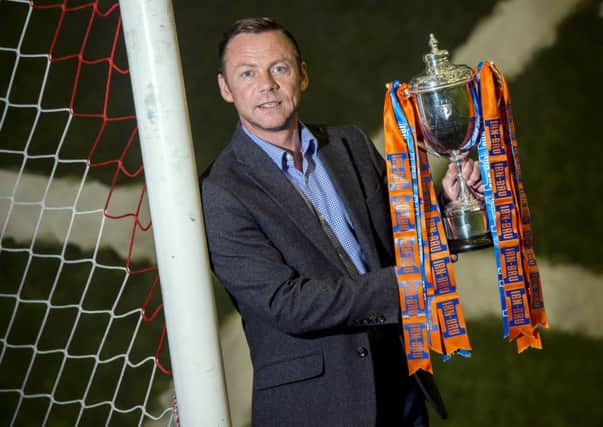SFA should stick with Gordon Strachan says Paul Dickov


There is little doubt that the heady achievements of Michael O’Neill and Chris Coleman, pictured below, in leading Northern Ireland and Wales respectively to the Euro 2016 finals has sharpened the scrutiny placed upon Strachan’s struggle to end Scotland’s painfully lengthening absence from the business end of a major tournament.
Ironically, Strachan still boasts a higher win percentage in his current job than either of the men whose overall successes are accentuating his failures. Even after last Friday night’s 3-0 defeat at Wembley, Strachan has a strike rate of 45 per cent, compared to 38 per cent for Coleman and 30 per cent for O’Neill. While those statistics are rendered irrelevant from a Scottish perspective unless Strachan can convert them into qualification for a World Cup or European Championship finals, they also provide an illustration of the faith shown in O’Neill and Coleman by their bosses at the Irish and Welsh FAs.
Advertisement
Hide AdAdvertisement
Hide AdO’Neill won just one of his first 18 games in charge of Northern Ireland before transforming their fortunes, while Coleman endured the worst start of any Welsh manager as he lost his first five games in charge. Former Scotland striker Paul Dickov, who was at Wembley for the defeat which left Strachan’s squad with just four points from their first four games of the 2018 World Cup campaign, believes the Scottish FA would do well to hold their nerve and display a similar degree of belief in their manager.
“I know there is a lot of pressure on Gordon at this minute and, from people I’ve been speaking to, the opinion seems split down the middle,” said Dickov. “There is clearly a big clamour for him to go among a lot of people after Friday. But I look at Northern Ireland and Wales and a big factor in why they are doing so well is that Michael had a horrendous start and couldn’t buy a win for a long, long time but his FA stood by him, even though there was a huge clamour for him to get sacked. Chris Coleman had a really bad start and it was the same thing, there was a huge clamour in the media and by the fans for him to get sacked but the Welsh FA stuck by him.
“I believe that continuity is one of the reasons why those two countries have done well recently. Yes, I know Wales have got a world-class player in Gareth Bale and another top-class player in Aaron Ramsey, but that continuity of keeping the management staff together is a big reason why they’ve done so well.”
Dickov would have afforded himself a wry smile at some of the more apocalyptic headlines which greeted the performance and result at Wembley. Having been part of the Scotland side which trailed 2-0 in the Faroe Islands before scrambling a 2-2 draw in a Euro 2004 qualifier, the former Arsenal and Manchester City striker knows last Friday was a long way from that kind of nadir.
“Listen, we were crap when I played too!,” he laughed. “It’s just been part and parcel of watching Scotland over the years. We’ve not got Kenny Dalglish, Charlie Nicholas, Mo Johnston or Ally McCoist anymore. So a lot of people are saying to look at Northern Ireland and Wales and see how they are setting up and playing. We need to start slowly and get back to basics and then build momentum again. That’s what’s getting them through games. I was at the game at Wembley and you can call me daft, stupid or both but I thought Scotland did all right. I’m based in England now and the general consensus, even from England fans, was up until the second goal Scotland were in the game. It’s quite simple for me – when you’ve got players of the quality of Wayne Rooney, Adam Lallana, Raheem Sterling and Daniel Sturridge in the last third of the pitch, that makes a difference. Scotland came out and started the first 20 minutes really well, then at the start of the second half we had two unbelievable chances. You talk about defining moments in games all the time and in the space of a few moments after the second chance, England score and it’s 2-0 and game over.
“But up until that point I thought Scotland did really well and the second goal just knocked the stuffing out of them. There is a huge expectation on the shoulders of the Scotland team but I didn’t see that the other night at Wembley. But the longer you go without qualifying, the pressure does build. Players can be selfish, I know I was. But the players have to take a bit of accountability. To lose three free headers is not something you can blame on the manager. People talk about formations, philosophies but it’s all about winning games. We’ve still got four home games coming up and things can change so quickly. A couple of results and everyone is back onside again. It’s so important that we just win the next game against Slovenia by hook or by crook.”